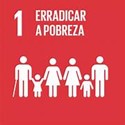The Graduate Program in Veterinary Medicine (Animal Clinics and Reproduction) at the Fluminense Federal University has sought to align its actions with the Sustainable Development Goals (SDGs) proposed by the United Nations (UN). Our research and extension projects in development have focused on promoting animal health, ecosystem well-being and sustainable development in general. By training Veterinarians, we also seek to contribute to the SDGs. Below, we highlight the actions we are taking to contribute to the SDGs:
|
|
SDG 1: NO POVERTY We have sought to train professionals to work in needy communities, developing sustainable solutions for animal health and food safety, such as the use of veterinary technologies aimed at increasing rural productivity and ensure the health of production animals. We have sought to develop and strengthen production systems aimed at small producers, who are the basis of family farming. |
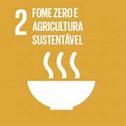 |
SDG 2: ZERO HUNGER We are developing research projects related to sustainable livestock management, aiming at animal welfare, projects to control diseases that affect food production. We have sought to carry out clinical management using alternative therapies, such as homeopathy. Therefore, we intend to guarantee the production of food of animal origin in an efficient and sustainable way. |
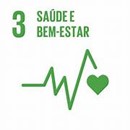 |
SDG 3: GOOD HEALTH AND WELL-BEING We have sought to develop research projects aimed at studying and controlling zoonoses, diseases that can be transmitted from animals to humans. We have sought to implement projects focused on improving the care and well-being of animals, including practices for preventing and treating diseases in pets and production animals. We have focused on studies aimed at welfare in the use of different reproductive biotechnologies in production animals. |
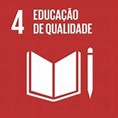 |
SDG 4: QUALITY EDUCATION náriThe Graduate Program in Veterinary Medicine has sought to act strongly in this SDG through professional improvement and training, in which by offering veterinary professionals accessible continuing education we thus provide these professionals with training on the most recent clinical and animal reproduction practices, addressing recent technologies and scientific advances. On the other hand, we have carried out exchange programs and partnerships with international universities and educational institutions to exchange knowledge, thus improving the training of our students. We have sought to encourage free workshops, seminars and webinars so that more veterinarians can access quality content. We have sought to stimulate research and innovation in the field of animal reproduction and veterinary health, contributing to the improvement of clinical practices. We seek to promote the publication of our studies in free access journals and platforms, to ensure that scientific knowledge is widely disseminated. We make available on our website (https://clinicaveterinaria.uff.br/acesso-as-dissertacoes-e-teses-defendidas-no-programa/) all dissertations and theses submitted in the Program, thus constituting a study and updating tool for veterinarians. Another important action we have sought to take regarding this SDG is the inclusion of educational technologies. We have a laboratory in our Program designed to develop 3D models to be used in the education of veterinarians and thus provide access to quality education for students and professionals, thus also avoiding the use of animals in practical training classes. |
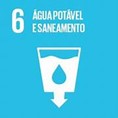 |
SDG 6: CLEAN WATER AND SANITATION We seek to raise awareness among students about the impact of veterinary practices on water resources and basic sanitation, such as the management of waste generated by our action, such as the appropriate disposal of veterinary drug residues. We have sought to develop projects that allow the replacement of intravaginal progesterone implants in the induction of synchronized estrus in small ruminants, precisely with a view to generating a smaller quantity of hormonal residues that could contaminate the environment. |
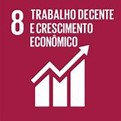 |
SDG 8: DECENT WORK AND ECONOMIC GROWTH The Graduate Program in Veterinary Medicine contributes to the training of highly qualified professionals, allowing them to work in various areas, such as veterinary clinics, animal reproduction, public health, and others. Professional qualification is essential to guarantee decent and productive work, as the market demands specialized professionals. By developing specialized skills, program graduates have more job opportunities in veterinary clinics, universities, biotechnology companies and in the animal health products industry. This contributes to the generation of quality work. Research in strategic areas of Veterinary Medicine, such as animal reproduction and veterinary clinics, result in advances that increase the efficiency of animal production and reduce waste. This can have a positive impact on the agricultural sector and the local economy, generating economic growth while promoting more sustainable practices. The Program develops applied research that improves the quality of veterinary services, in addition to developing new animal reproduction techniques, which can improve agricultural and livestock production. This results not only in economic growth, but also in more efficient and sustainable practices. |
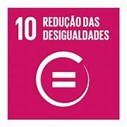 |
SDG 10: REDUCED INEQUALITIES We have sought to compete in scholarship notices, we have used our PROAP/CAPES resources to finance projects and research, as well as providing financial aid to students to participate in Scientific Events and even to carry out their field work. We have sought support from the University to ensure transportation to carry out the field work required for various research projects. We have allocated vacancies in our selective processes for the inclusion of minorities, with a focus on gender, race, and ethnicity equity, in the training of veterinary professionals. Through the work of our graduate students and teachers at the Veterinary University Hospital, we have sought to ensure that the needy population has access to quality and specialized veterinary services. Through several extension projects (Animal Health Project, Study, Research and Extension Group on Goats and Sheep, Horse Friend Project), we have sought to serve rural communities and regions with low coverage of veterinary services, ensuring that these populations also have access to animal health and public health education. |
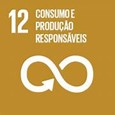 |
SDG 12: RESPONSIBLE CONSUMPTION AND PRODUCTION We have been concerned with promoting veterinary practices that encourage the sustainable production of animal products, the preservation of biodiversity and the responsible management of animals in production systems. |
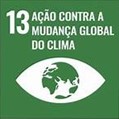 |
SDG 13: CLIMATE ACTION Research projects in our Graduate Program are focused on studying diseases, such as leptospirosis, whose occurrence in animals and humans is being impacted because of climate change and which consequently has impacted animal and human health. |
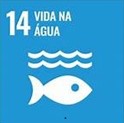 |
SDG 14: LIFE BELOW WATER We are developing research projects in aquatic health and sustainable management of marine and freshwater species, which may include preventive and therapeutic actions in aquaculture. |
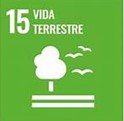 |
SDG 15: LIFE ON LAND In our Graduate Program we have the development of projects aimed at the conservation of endangered species and sustainable management of fauna, including research into diseases in wild animals and the prevention of invasive species, which have been developed in our Graduate Program. |
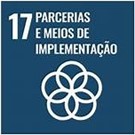 |
SDG 17: PARTNERSHIPS FOR THE GOALS The Graduate Program has established partnerships with other national and international institutions, with municipal, state, and local governments and federal agencies and NGOs to promote sustainable practices and collaborative actions, such as the exchange of knowledge on animal health and sustainability. |


